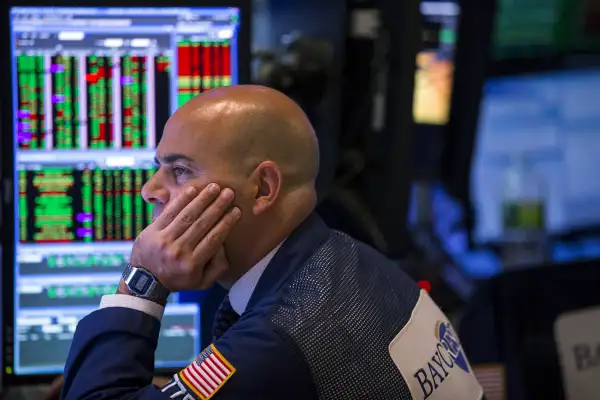What's in Store for Stocks in the Coming Week
Money is not a client of any investment adviser featured on this page. The information provided on this page is for educational purposes only and is not intended as investment advice. Money does not offer advisory services.

After a quiet end to a frenetic week on Wall Street—in which the Dow fell as much as 1,000 points only to rebound by about as many—the question on everyone's mind is the same...
What's in store for stocks in the coming week?
Will the market get off to a another frenzied start like it did on Aug. 24, when news about China's market crash and economic woes sent the Dow plunging? Or is the worst of the storm behind us, and will equities begin to grind out gains from here on out?
To answer that, you have to pay attention to the following:
* The Chinese stock market
Wall Street usually dances to the beat of its own drum, but in jittery times, global markets tend to move in unison.
That's what happened in the global financial crisis in 2008. And that's what's been happening since Aug. 17, when China's stock market slide began to spread around the world.
So Sunday night, when the Asian markets begin trading, you'll have a sense of whether Wall Street will be in a good or bad mood come Monday morning.
Fed Chatter
Toward the end of the week, remarks by Federal Reserve officials did as much to move the market as real economic data. When New York Fed president William Dudley on Wednesday said the case for raising interest rates in September was "less compelling" in light of the recent market shocks, Wall Street soared.
But in subsequent days, several officials including Cleveland Fed president Loretta Mester, Kansas City Fed president Esther George, and St. Louis Fed president James Bullard have all said the economy remains strong enough for a rate hike.
So will the Fed increase rates in September or not?
At a meeting Saturday in Jackson Hole, Wyo., Fed vice chairman Stanley Fischer said that there was a "pretty strong case" for raising rates at the next policy-making session on September 16 and 17, though there was time to "wait and see" before making a decision. Expect investors to react immediately Monday morning.
* The Real Economy
The big debate last week was whether the stock market plunge was foreshadowing a potential recession. By Friday, the bulls had made a convincing argument that a recession was not in the cards, which allowed the market to recover.
This week, investors will be looking for confirmation.
On Tuesday, they'll be looking at the ISM Manufacturing index, which gauges factory activity throughout the country. Any reading above 50 is considered a sign of growth, and for 31 straight months, the industrial economy has been expanding.
The bulls will be looking for another reading above, or at least on par, with July's reading of 52.7.
The Job Market
No matter what happens in China, the U.S. economy won't go into recession if U.S. companies are seeing sufficient demand to step up hiring. This week, there will be two key reports that speak to jobs.
The first is indirect. On Tuesday, investors will get an update on auto sales. Thus far in 2015, auto sales are trending toward their best year in more than a decade.
If motor vehicle sales continue on this pace, it would speak to the underlying strength of the labor market. After all, only consumers who are confident about their job security and wages will hit the showrooms.
Then on Friday comes the Labor Department's actual jobs report. Wall Street believes the U.S. economy produced around 220,000 nonfarm jobs in August. If the economy hits this mark, it should put a rest to recession talk and fears over a rate hike, says Kate Warne, investment strategist for Edward Jones.
After all, we've seen "job creation at more than 200,000 a month for a while," Warne says. "That's not an economy that could be snuffed out by a mere quarter-point rise in short-term interest rates."
